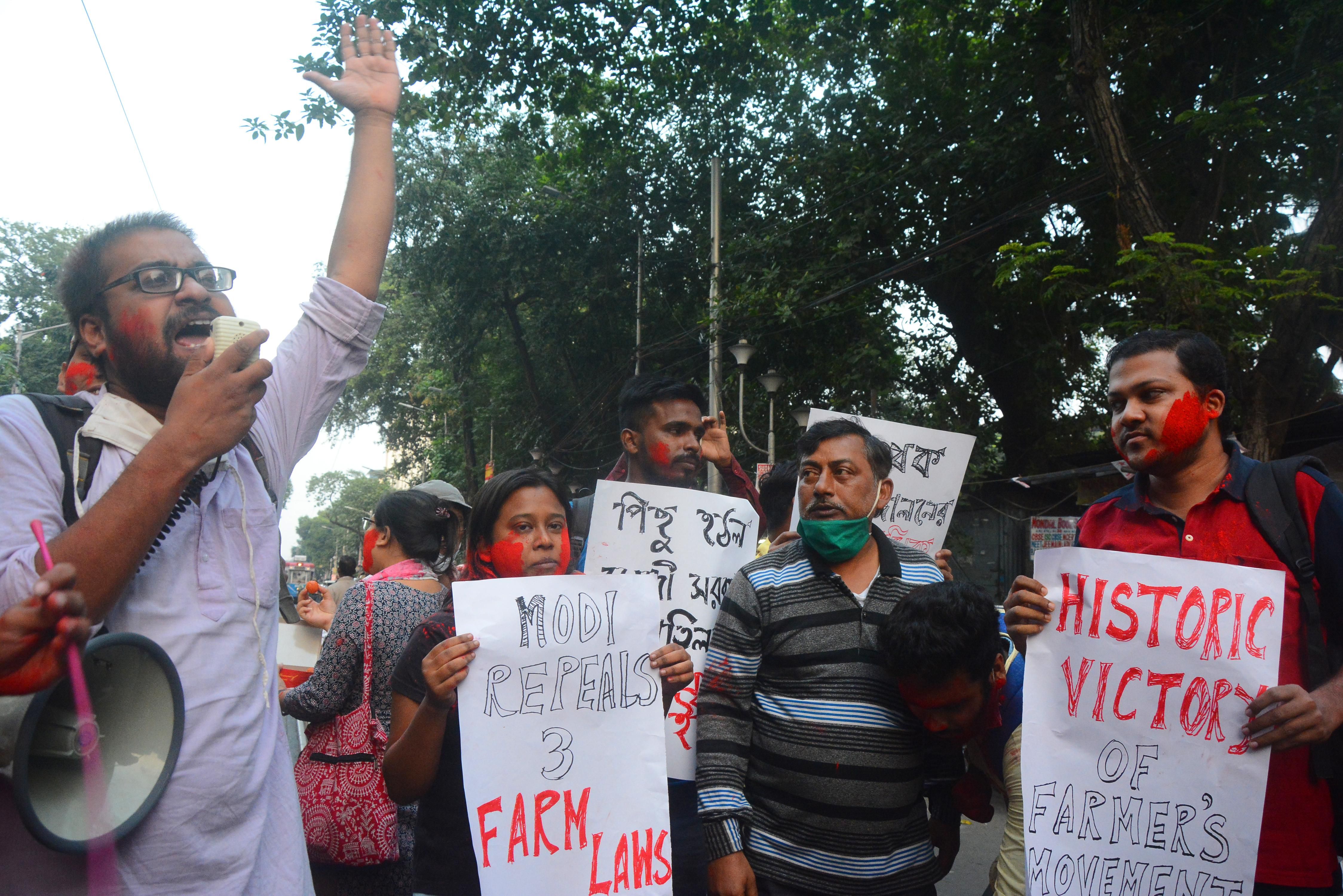Modi plays politics with farmers. The Indian government's recent climbdown on three agricultural laws was a rare concession from Modi, a popular, strong-willed nationalist who came to power in 2014 and has refused to back down on contentious and oft-criticized policy issues – like decimating India's cash money supply, revoking Kashmir's autonomous status, or amending the country's citizenship laws to effectively exclude Muslims. Now, farmers unions seem to smell blood in the water. While many are indeed thrilled that Modi has done away with the farming reforms, which would no longer have guaranteed minimum prices for crops, giving more power to big business, many see this concession as a shrewd political move. Early next year elections will be held in Uttar Pradesh, India's most populous state and an agricultural stronghold which traditionally backs Modi's Bharatiya Janata Party. But the BJP has lost support there in recent months because of the agricultural laws. Still, Modi hasn't won over farmers just yet: farm unions want the government to write certain "minimum support prices" into law, and to expand the number of crops that are given these government price protections. But a law like that won't be popular with powerful agriculture corporations. Will Modi do it anyway?
More from GZERO Media
What We’re Watching: Modi tested in India elections, Iraq election promises little, Cambodia-Thailand truce on the rocks
After months of tensions between the world’s richest country and the world’s most populous one, it appears that the United States and India are on the verge of making a trade deal.
Ian Bremmer talks with tech analyst Dan Wang on GZERO World about how Americans and Chinese share the same restless drive to build and innovate, even as their political systems treat that ambition in very very different ways.
In this Quick Take, Ian Bremmer breaks down the changing dynamics of the Russia-Ukraine war, where Europe is taking the lead in military support while the US adjusts its approach.
+26: Two BBC leaders, Director-General Tim Davie and BBC News Head Deborah Turness, resigned on Sunday after it emerged that the British news organization edited footage of US President Donald Trump in a misleading fashion.
What We’re Watching: Longest-ever US shutdown coming to an end, Georgia Dream making one-party rule reality, Syria’s president in Washington
Pope Leo XIV presides over a mass at Saint John Lateran archbasilica in Vatican City on November 9, 2025.
It’s been six months since the Catholic Church elected its first American pope, Leo XIV. Since then, the Chicago-born pontiff has had sharp words for US President Donald Trump.
Behind every scam lies a story — and within every story, a critical lesson. Anatomy of a Scam, takes you inside the world of modern fraud — from investment schemes to impersonation and romance scams. You'll meet the investigators tracking down bad actors and learn about the innovative work being done across the payments ecosystem to protect consumers and businesses alike. Watch the first episode of Mastercard's five-part documentary, 'Anatomy of a Scam,' here.
For better and worse, China has become an engineering powerhouse. Dan Wang joins Ian Bremmer on GZERO World to talk about what the US can learn from China’s example.
